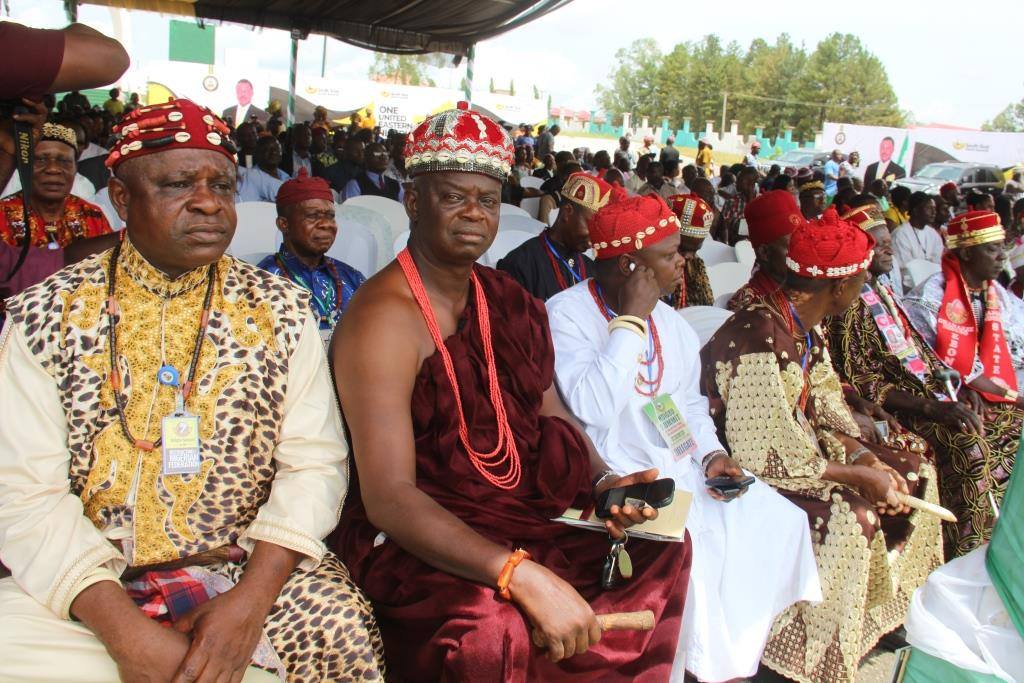The Igbo people are one of the largest ethnic groups in Nigeria. They are known for their travels and are indigenous to the five Southeastern states of Abia, Anambra, Ebonyi, Enugu, and Imo. In addition to this, there are also Igbo communities in other parts of Nigeria, particularly in the South-South states of Delta, Rivers, and Akwa Ibom. Even in the North Central States of Benue and Kogi, you can find communities of Igbos living together with the Idoma and Igala people. However, most people are unaware of the Indigenous Igbo communities in Kogi State due to their minority status and the perception that the five Southeastern states are the only recognized Igbo Communities in Nigeria.
In this post, we will be exploring the lifestyle of the Indigenous Igbo Communities in Kogi State.
Indigenous Igbo Communities In Kogi State
Kogi State, also known as the “Confluence State”, was created out of Benue and Kwara States. It is a culturally rich state in Nigeria, being home to various ethnic groups such as the Yorubas, Hausas, and Igbos. The state shares borders with some Eastern states, which explains why they share some cultural similarities due to intermixing.
Read this – X-raying the indigenous Igbo communities in Benue State
The Igbo people who are indigenous inhabitants of Kogi State are primarily located in Kogi East, which is the most populated and largest in terms of land mass. They are found in several local government areas including:
1. Akpanya
The community is located within the Igalamela/Odolu Local Government Area, sharing a boundary with Enugu State to the east and the Niger River to the west. The majority of the locals, approximately 95%, speak Igbo, while the remaining 5% are conversant in the Igala native tongue. It is worth noting that some Igbo natives in this community have converted to Islam.
2. Nwajala
It is made up of other communities like; Umuoye, Ubulie-Umueze in Ibaji LGA, in the south of Kogi state. The community is separated from Edo State by the Niger River.
3. Ebokwe
It consists of communities like; Amaeke, Amadiefoha, Amankpo, Amauwanu camp, Amaufulu, which are all under Igalamela/Odolu LGA.
4. EkeAvurugo
The people of EkeAvurugo are under Ibaji Local Government Area, they are bilingual as they speak Igbo as a first language and Igala as a second language, this is as a result of living together with the Igalas.
5. Onicha-Igo
This is a community in Ofu LGA that is located in the central part of Kogi State. They are indigenous Igbo-speaking natives.
6. The Odolu Community
The people in Odolu community are also bilingual but in their case, the predominant language is Igala while the Nsukka Igbo tongue is adopted as their second language.
The Igbos in Kogi – what they do, culture, and political representation
Being a minority ethnic group has not stopped the indigenous Igbos from living their lives like every other person in the state. They are recognized for their agricultural prowess and as traders who sells off products from their harvest. They have four (4) market days which are, Eke, Oye, Afor, and Nkwo, just like the Igalas.
Due to modernization, some of them have left farming to other trades like that of Spare parts of vehicles to other merchandise and are dominating the market exceptionally well, thereby contributing their quota to the economic growth of the state.
In terms of politics, they are given the right to exercise their franchise just like every other person residing in Kogi state, regardless of their ethnicity. The present deputy governor of the state in the person of Edward David Onoja is from an Igbo speaking community, Odidoko-Emonyoku in Ogugu District, to be precise.
Read this – Igbos and Igala Geographical, Historical, and Cultural ties
The indigenous Igbo communities still uphold their culture and traditional values as their brothers and sisters in the Eastern part of Nigeria. Some of their cultural practices are similar to that of the Igala natives. For instance, the Ofala festival that is used to commemorate the Kingship of the Obi and New Yam Festival has peculiarities to the Ata coronation of the Igala kingdom.
As they both entail music and dance as they celebrate, symbolism which is evident in their traditional regalias (eagle feathers on their caps represent strength, the horse tail, and a machete in their hands) there is also the breaking of kola nut which signifies peace and oneness, and the use of masquerades to add color to the day.
Written by Grace O
Connect with us on Pinterest
Post Disclaimer
The opinions, beliefs and viewpoints expressed by the author and forum participants on this website do not necessarily reflect the opinions, beliefs and viewpoints of Anaedo Online or official policies of the Anaedo Online.

